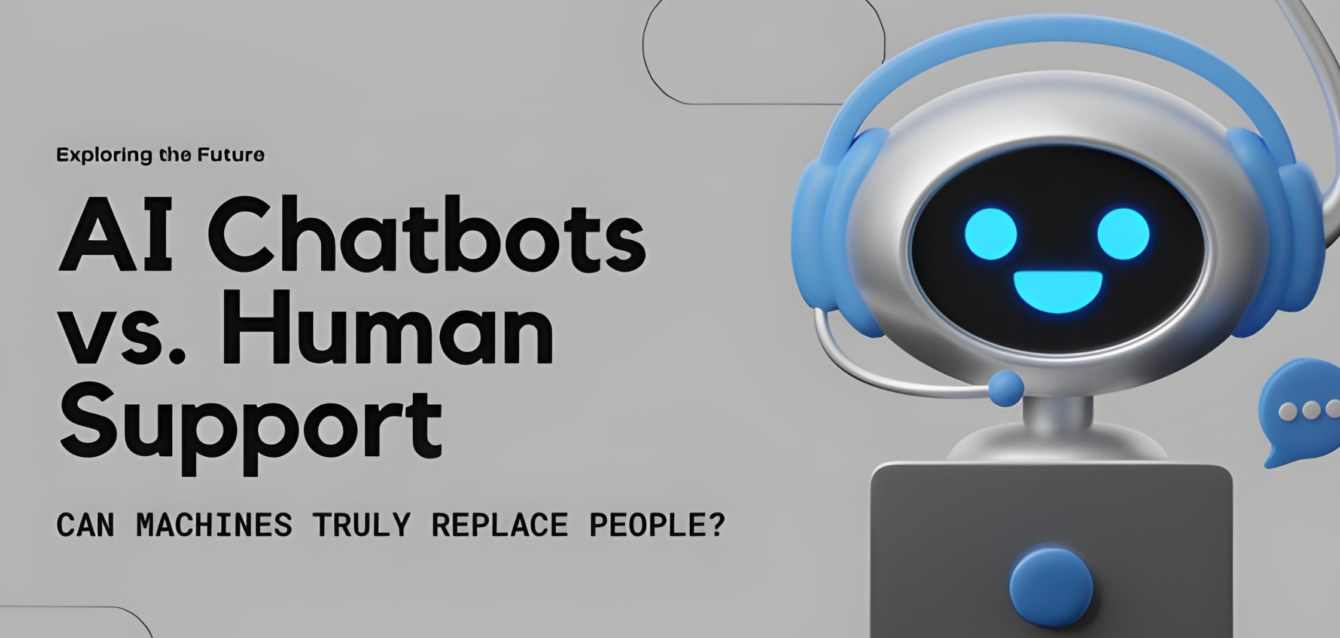Customer support has always been a critical aspect of business success, ensuring that consumers receive the help they need when using a product or service. With advancements in artificial intelligence, businesses are now turning to AI chatbots to enhance customer service operations. These AI-powered assistants can answer queries, handle multiple conversations simultaneously, and provide round-the-clock support. But can machines truly replace human support? This case study examines the effectiveness of AI chatbots compared to human agents and explores how businesses can strike the right balance between automation and human intervention.
Use Case: Implementing AI Chatbots in a Retail Business
The Problem: Scaling Customer Support Without Increasing Costs
A mid-sized e-commerce company was struggling to handle a surge in customer inquiries, especially during peak sales seasons. Their human support team was overwhelmed, leading to long response times, customer dissatisfaction, and increased operational costs. They needed a cost-effective solution that could manage customer queries efficiently while maintaining a high level of engagement.
The Solution: AI Chatbot Integration
The e-commerce company decided to implement an AI chatbot to handle frequently asked questions, order tracking, and basic troubleshooting. The chatbot was designed to offer real-time responses, reducing the burden on human agents and streamlining customer interactions. Meanwhile, complex issues were still escalated to human support representatives.
Results & Key Comparisons
1. Response Time & Availability
- AI Chatbots: Respond instantly, available 24/7, and handle multiple inquiries at once.
- Human Support: Response times depend on agent availability and workload.
The e-commerce company saw a 40% reduction in customer wait times, leading to improved customer satisfaction.
2. Personalization & Emotional Intelligence
- AI Chatbots: Use data-driven personalization but struggle with understanding emotions.
- Human Support: Empathetic and adaptable to customer emotions and frustrations.
Customers preferred human agents when dealing with complaints or emotional concerns, highlighting the importance of human empathy in customer service.
3. Cost Efficiency & Scalability
- AI Chatbots: Reduce staffing costs and can handle unlimited interactions.
- Human Support: Expensive to scale, requiring training and salary investments.
The e-commerce company reduced support costs by 35% after chatbot implementation while improving operational efficiency.
4. Accuracy & Problem-Solving Abilities
- AI Chatbots: Accurate for predefined queries but struggle with complex, unpredictable problems.
- Human Support: Better at handling nuanced and unique customer issues.
While the chatbot successfully resolved 70% of routine queries, human agents remained crucial for handling intricate requests.
Challenges in AI-Powered Customer Support
While AI chatbots bring significant advantages, they also pose some challenges. One major limitation is the lack of emotional intelligence. Chatbots rely on pre-programmed responses and machine learning algorithms, but they still struggle to understand nuanced human emotions, sarcasm, or context beyond their training data. This can lead to customer frustration, especially when dealing with sensitive matters.
Additionally, AI chatbots require constant updates and maintenance to stay relevant. Businesses must invest in training the chatbot with new data, refining responses, and ensuring that it continues to improve over time. Without these updates, chatbots may deliver outdated or incorrect information, negatively impacting the customer experience.
Another key challenge is handling complex queries. While chatbots can efficiently manage FAQs and standard troubleshooting, they often struggle with ambiguous questions or unique customer concerns. In such cases, a well-structured escalation system to human agents is necessary to maintain high customer satisfaction levels.
Final Verdict: A Hybrid Approach
The case study revealed that AI chatbots enhance efficiency and cost savings, but they cannot fully replace human support. Instead, the best results come from a hybrid model, where chatbots handle routine queries and escalate complex issues to human agents. Businesses should focus on leveraging AI-powered automation while retaining human expertise to ensure a seamless customer support experience.
Companies that integrate AI chatbots effectively into their support strategy can significantly reduce costs and improve efficiency, but they must also recognize the irreplaceable value of human touch in certain customer interactions. Chatbots should be seen as complementary to human agents rather than replacements.
Conclusion
AI chatbots are revolutionizing customer support by improving response times, reducing costs, and providing 24/7 assistance. However, they still lack the emotional intelligence and problem-solving abilities that human agents bring to the table. Businesses must find the right balance by using AI chatbots for efficiency while ensuring that human support is available for personalized interactions. A hybrid approach that combines AI automation with human empathy is the key to maximizing customer satisfaction and business success.
Looking to implement AI chatbots for your business while maintaining human touch? Connect with ClearClick Digital for expert guidance on AI-driven customer engagement solutions.

